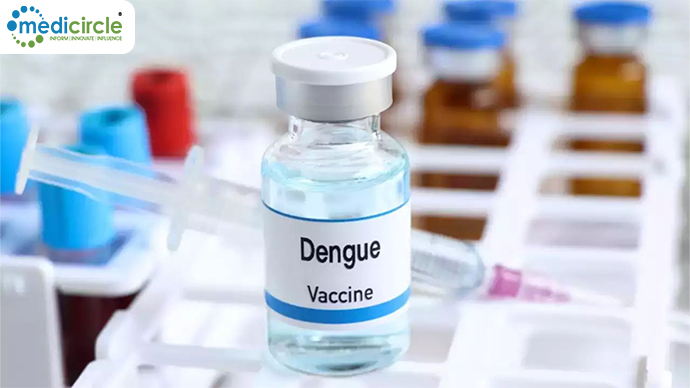The Indian Council of Medical Research (ICMR) and Panacea Biotec have launched India's first Phase 3 clinical trial for a dengue vaccine, marking a significant milestone in the nation’s healthcare sector. This trial, focused on evaluating the effectiveness of DengiAll, a tetravalent dengue vaccine developed indigenously by Panacea Biotec, began on Wednesday at PGIMS Rohtak.
Union Health Minister J P Nadda described this initiative as a pivotal step in India’s ongoing efforts to combat dengue. He emphasized that this collaboration between ICMR and Panacea Biotec not only aims to safeguard public health but also aligns with the broader vision of Atmanirbhar Bharat, which seeks self-reliance in critical areas like healthcare.
Dengue remains a formidable challenge in India, as the country currently lacks any specific antiviral treatment or licensed vaccine for the disease. The complex nature of dengue, caused by four distinct virus serotypes, has made vaccine development particularly challenging. India is among the nations with the highest incidence of dengue, with the World Health Organization (WHO) noting a consistent rise in global cases over the past two decades.
DengiAll, the vaccine being tested, is based on a tetravalent strain initially developed by the U.S. National Institutes of Health. Panacea Biotec is one of three Indian companies that received this strain, and after extensive research and successful Phase 1 and 2 trials completed between 2018 and 2019, the company is now moving forward with this crucial Phase 3 trial.
The current trial, a joint effort between ICMR and Panacea Biotec, will be conducted across 19 sites in 18 States and Union Territories of India. It will involve over 10,335 healthy adult participants, who will be monitored over a two-year period. This trial is predominantly funded by ICMR, with additional support from Panacea Biotec, underscoring the commitment to advancing indigenous vaccine development.
Dr. Rajesh Bhushan, Secretary of the Department of Health and Family Welfare, highlighted the trial's significance, stating that it represents a major stride in addressing one of India’s most urgent public health issues. He also pointed out that this initiative reflects the country’s dedication to self-reliance in healthcare and the development of homegrown solutions.
Dengue poses a significant public health threat in India, with the country ranking among the top 30 globally in terms of disease incidence. According to WHO data, the incidence of dengue has been rising steadily worldwide, with more than 129 countries reporting cases by the end of 2023.
In India, a substantial proportion of dengue infections—between 75% and 80%—are asymptomatic, meaning that many people who carry the virus do not show symptoms but can still spread the disease through Aedes mosquito bites. Among those who do exhibit symptoms, children are particularly vulnerable, facing a higher risk of severe illness and hospitalization.
For adults, dengue can progress to severe forms like dengue hemorrhagic fever and dengue shock syndrome, both of which are potentially fatal. The presence of four dengue virus serotypes complicates the situation further, as individuals can be reinfected by different serotypes, with limited cross-protection between them.
As India advances in this critical Phase 3 trial, the hope is that DengiAll will soon become a key tool in the nation’s fight against dengue, offering a much-needed preventive measure against this widespread and dangerous disease. This trial not only aims to protect the population but also reinforces India’s capability to produce cutting-edge healthcare solutions, furthering the nation’s goal of self-reliance in essential medical innovations.

 This trial not only aims to protect the population but also reinforces India’s capability to produce cutting-edge healthcare solutions, furthering the nation’s goal of self-reliance in essential medical innovations.
This trial not only aims to protect the population but also reinforces India’s capability to produce cutting-edge healthcare solutions, furthering the nation’s goal of self-reliance in essential medical innovations. 










.jpeg)











.jpg)








